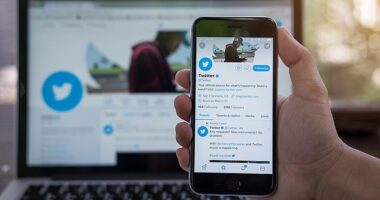

In its early days, Amazon defended its right to sell any book, no matter its content. When the company was criticized for carrying the title The Pedophile’s Guide to Love and Pleasure in 2010, Amazon said it believed it was “censorship to not sell certain books.” Since then, the company has been reluctant to disclose what titles it’s unwilling to sell and under what circumstances.
Amazon’s guidelines don’t mention medical misinformation, but the company has previously taken down books that make unscientific or harmful medical claims. After a report was published in WIRED last year, Amazon confirmed to news outlets that it removed several books about vaccines and unscientific autism “cures,” though it declined to specify why. The action also came after social media sites like Twitter and Facebook announced plans to curb misinformation about vaccines.
Social media platforms are facing a similar misinformation tsunami with the outbreak of Covid-19—what the World Health Organization calls it an “infodemic.” Facebook and Google have both banned advertisements for face masks after complaints of price gouging and misleading claims. The companies, along with Twitter, say they are working with the World Health Organization and other authorities to direct people to accurate information. Amazon, too, has added a banner to the top of certain search results urging customers to “Learn more about Coronavirus protective measures,” with a link to the Centers for Disease Control and Prevention’s website.
But searching for “coronavirus books” can bring up the banner, followed by over 700 items, including titles like Coronavirus Covid-19 Controversy: Conspiracy Theories around the Demon Virus From China. Many of these books appear to be self-published and of low quality. One book on Amazon claiming to be a “complete manual” to the coronavirus contains comically nonsensical phrases, according to a public preview. “You bookmark wholesome recipes, select up kale and quinoa at the grocery and purchase a pressure cooker,” reads one sentence in a section supposedly describing Covid-19. The title sells for 99 cents and has over two dozen five-star reviews. Some books are not only poorly written but plagiarized, according to NBC News, which found the first two chapters of one coronavirus book on Amazon were lifted from its own articles.
Amazon offers an easy way for authors to self-publish for free through its Kindle Direct Publishing service. The platform has additional Content Quality” guidelines prohibiting content that “disappoints our customers,” including books that are too short, poorly translated, and “content that is freely available on the web.” The spokesperson for Amazon declined to say how it reviews books that are uploaded to Kindle Direct Publishing before they’re available to consumers. Publishing “takes less than 5 minutes and your book appears on Kindle stores worldwide within 24-48 hours,” according to Amazon’s website.
Many of the coronavirus titles on Amazon are part of its Kindle Unlimited subscription service, the so-called “Netflix for books” Amazon launched in 2014. Amazon pays authors who participate in the program about half a cent for each page page subscribers read, according to some estimates. Since its launch, Kindle Unlimited has been a target for scams like fake reviews, book stuffing, and other tricks to rank higher in Amazon charts and earn more royalty money.
In vetting these books, Amazon often appears to be reacting to customer reviews and journalists. For example, Amazon took down two books about the coronavirus after they were referenced in the Business Insider story, including Military Virus Apocalypse. Two other books cited in a Washington Post article, written by an author calling himself Dr. Sanjay Gupta, Coronavirus and Me and Coronavirus Is In/Near My Country, have also vanished.







